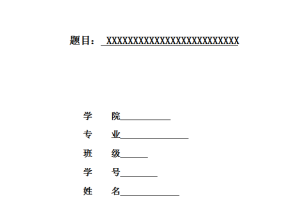随着全球气候问题越来越被人们所重视,低碳发展正被全球各国政府纳入到自己的执政方针中去。低碳发展最主要的内涵之一便是控制二氧化碳的排放。为此,各国政府和学者进行了广泛的探索和实践。这其中,釆用最为广泛、效果最为显著的无疑是碳税政策。从上世纪90年代起步,以北欧为代表的发达国家已经走到了碳税实践的最前沿。经过20多年的探索和实践,碳税政策不仅显示了其在节能减排方面所发挥出的巨大作用,更深刻的影响了北欧各国的经济、社会各方面。在全球化的时代背景下,这种对经济、社会的影响无疑会关系到一国参与国际竞争的实力,即国际竞争力。
我国作为世界上最大的发展中国家和最大的二氧化碳排放国,在取得巨大经济成就的同时,也为此付出了极大的环境代价。粗放型的经济发展模式,使得我们的经济成长效率低、成本高,忽视环境保护,可持续性不足。在这种情况下,一方面为了尽可能的遏制二氧化碳的超量排放而必须考虑开征碳税;另一方面,发展低碳经济、建设低碳社会也是提高我国国际竞争力,更好的应对未来全球局势的必然要求。因此,我们必须对碳税与国际竞争力之间的关系有前瞻性的认识,才能帮助决策者更好的实现短期利益与长期利益的平衡,经济发展与社会进步的共赢,提升我国的综合国际竞争力。
关键词:北欧, 碳税, 国际竞争力
With more and more attention being paid to the global climate, low carbon development is being incorporated into the governing policy by the governments of the world. One of the main connotation of low carbon development is to control the emission of carbon dioxide. To this end, governments and scholars have carried out a wide range of exploration and practice. Among them, the most widely used, the most significant effect is undoubtedly the carbon tax policy. Starting from the 90’s of last century, the developed countries represented by the Nordic countries have come to the forefront of the carbon tax practice. After more than 20 years of exploration and practice, the carbon tax policy not only shows its great role in energy saving and emission reduction, but also has a profound impact on the economic and social aspects of the Nordic countries. Under the background of globalization, the economic and social impact is undoubtedly related to the strength of a country’s participation in international competition.
China, as the largest developing country and the largest emitter of carbon dioxide in the world, has made great economic achievements, but also paid a great environmental costs. Extensive mode of economic development, making our economic growth efficiency is low, the cost is high, ignoring the environmental protection, lack of sustainability. In this case, on the one hand to excess as far as possible to curb carbon dioxide emissions and must be considering the introduction of a carbon tax; on the other hand, the development of low-carbon economy, the construction of low-carbon society is to improve the international competitiveness of our country, to better cope with the future of the global situation inevitable requirement. Therefore, we must be forward-looking understanding of the relationship between carbon tax and international competitiveness, in order to help policymakers better realization of short-term interests and long-term interests of balance, win-win of economic development and social progress, improve the comprehensive international competitiveness of our country.
KEY WORDS: Northern Europe, Carbon tax, International competitiveness
目 录
摘 要……………………………………………………………………………………………………………. 1
ABSTRACT……………………………………………………………………………………………………… 2
1绪 论…………………………………………………………………………………………………………… 4
1.1 选题背景和意义…………………………………………………………………………………….. 4
1.1.1选题背景……………………………………………………………………………………… 4
1.1.2选题意义……………………………………………………………………………………… 4
1.2国内外征收现状……………………………………………………………………………………… 5
1.2.1 国外征收现状………………………………………………………………………………. 5
1.2.2 国内征收现状………………………………………………………………………………. 6
1.3研究思路和方法……………………………………………………………………………………… 7
1.3.1本文研究思路与内容……………………………………………………………………… 7
1.3.2研究方法……………………………………………………………………………………… 8
1.4本文研究创新与不足……………………………………………………………………………….. 8
2开征碳税的基本理论及对一国国际影响力…………………………………………………………….. 9
2.1碳税的概念与分类………………………………………………………………………………….. 9
2.1.1碳税的概念………………………………………………………………………………….. 9
2.1.2碳税的分类………………………………………………………………………………….. 9
2.2主要碳税理论………………………………………………………………………………………. 10
2.2.1外部性与庇古税………………………………………………………………………….. 10
2.2.2公共产品理论……………………………………………………………………………… 10
2.2.3污染者付费………………………………………………………………………………… 11
2.2.4双重红利理论……………………………………………………………………………… 11
2.3开征碳税对一国国际影响力……………………………………………………………………. 12
2.3.1宏观经济……………………………………………………………………………………. 12
2.3.2企业效率……………………………………………………………………………………. 13
2.3.3科技创新……………………………………………………………………………………. 13
2.3.4可持续性与环境………………………………………………………………………….. 14
3征碳税对我国的国际竞争力产生的影响……………………………………………………………… 16
3.1分析前提…………………………………………………………………………………………….. 16
3.2 具体影响分析……………………………………………………………………………………… 16
4国外碳税征收的实践分析及影响……………………………………………………………………….. 18
4.1丹麦碳税征收的经验……………………………………………………………………………… 18
4.1.1丹麦碳税征收的实践分析……………………………………………………………… 18
4.1.2丹麦碳税征收的影响……………………………………………………………………. 19
4.2芬兰碳税征收的经验……………………………………………………………………………… 19
4.2.1芬兰碳税征收的实践分析……………………………………………………………… 19
4.2.2对芬兰碳税征收的影响…………………………………………………………………. 20
5提高碳税征收对我国国际竞争力的对策……………………………………………………………… 21
5.1碳税征收对我国国际及竞争力的影响……………………………………………………….. 21
5.1.1经济影响……………………………………………………………………………………. 21
5.1.2政治影响……………………………………………………………………………………. 22
5.2碳税征收实施的相关对策……………………………………………………………………….. 23
5.2.1结合国情,正确把握碳税开征时机…………………………………………………… 23
5.2.2统筹谋划,科学制定相关配套制度…………………………………………………… 23
5.2.3差别征税,坚持效率与公平并重………………………………………………………. 25
5.2.4鼓励低碳,加快经济发展方式转变…………………………………………………… 25
6结论与展望…………………………………………………………………………………………………… 27
6.1结论…………………………………………………………………………………………………… 27
6.2展望…………………………………………………………………………………………………… 27
致谢………………………………………………………………………………………………………………. 29
参考文献………………………………………………………………………………………………………… 30





